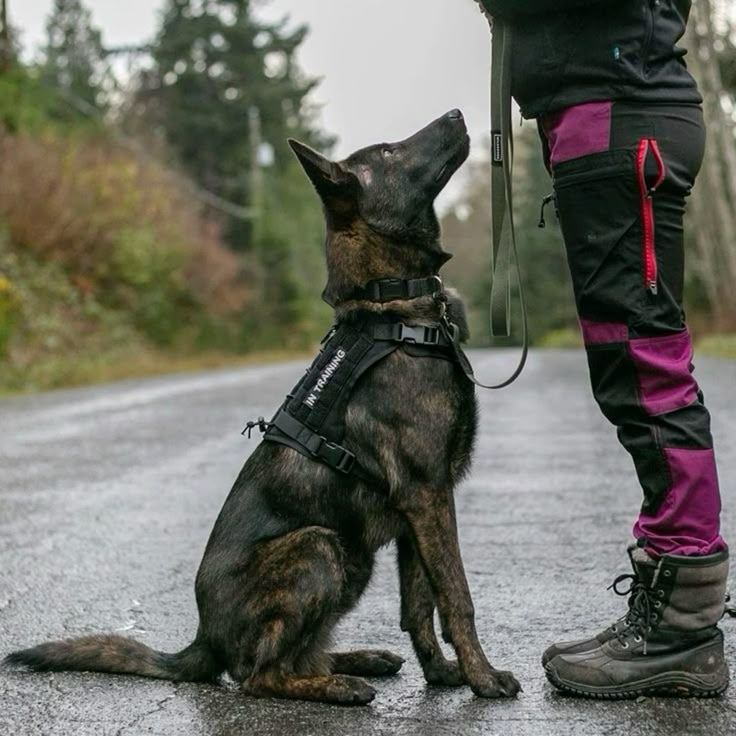Choosing the right dog trainers Los Angeles is a crucial decision that can significantly impact your dog’s behavior, your relationship with them, and the overall harmony of your household. With a diverse range of trainers and methodologies available, a thorough interview process is essential to ensure you select a professional who aligns with your goals, your dog’s needs, and your personal philosophy. This guide provides key questions to ask and factors to consider before committing to a trainer, ensuring you make an informed and confident choice.
1. Understand Their Training Philosophy and Methods
This is perhaps the most important area to explore. The training philosophy dictates how your dog will learn and how you will interact with them.
- “What is your core training philosophy?” Listen for terms like “positive reinforcement,” “balanced training,” “force-free,” or “aversive-free.”
- “What specific methods and tools do you use (e.g., treats, clickers, leashes, collars, e-collars)?” Ask them to explain why they use these tools and methods.
- Red Flag: Be wary of trainers who rely heavily on punishment, fear, intimidation, or tools like shock collars, choke chains, or prong collars without a clear explanation of their humane application and a strong emphasis on positive alternatives. For many owners, especially those with sensitive or fearful dogs, positive reinforcement is the preferred and most ethical approach.
- “How do you handle unwanted behaviors (e.g., barking, jumping, pulling)?” A good trainer will focus on redirecting, managing the environment, and teaching alternative, desirable behaviors, rather than just suppressing the unwanted one.
- “How do you ensure the training is fun and engaging for my dog?” Positive trainers will emphasize building motivation and enjoyment in the learning process.
2. Inquire About Their Qualifications and Experience
A trainer’s background and expertise are paramount to their effectiveness and your dog’s safety.
- “What are your certifications and from what organizations?” Look for certifications like CPDT-KA (Certified Professional Dog Trainer – Knowledge Assessed), CBCC-KA (Certified Canine Behavior Consultant – Knowledge Assessed), or those from reputable academies (e.g., Karen Pryor Academy, Certification Council for Professional Dog Trainers).
- “How many years have you been training dogs professionally?” While new trainers can be excellent, experience often brings a deeper understanding of diverse canine temperaments and complex issues.
- “Do you specialize in any particular areas (e.g., puppies, aggression, reactivity, service dogs)?” If your dog has a specific or severe issue, ensure the trainer has a proven track record in that area. Ask for case studies or testimonials related to similar problems.
- “How do you continue your education and stay updated on dog behavior science?” Good trainers are committed to lifelong learning.
3. Understand the Program Structure and Owner Involvement
The format of the training should fit your lifestyle and learning preferences.
- “What specific programs do you offer (e.g., private lessons, group classes, board & train, day training)?” Ask about the pros and cons of each for your situation.
- “What is the typical duration and frequency of sessions?”
- “What is my role in the training process?” A reputable trainer will emphasize owner education and involvement. You should be learning how to communicate with and train your dog, not just dropping them off for someone else to “fix.”
- “What kind of support do you offer between sessions or after the program is complete?” Look for ongoing support, such as phone/email check-ins, access to online resources, or alumni classes.
4. Discuss Logistics, Cost, and Guarantees
Practical considerations are important for a smooth training experience.
- “What are your fees, and what do they include?” Get a clear breakdown of costs for consultations, sessions, and any packages.
- “Do you offer any guarantees?” Be wary of trainers who “guarantee” results, especially for complex behavioral issues. Dog training involves living beings, and while a good trainer can significantly improve behavior, a 100% guarantee is often unrealistic. A more realistic “guarantee” might be a commitment to work with you until your goals are met, or a refund policy if you’re not satisfied with the training process.
- “What is your cancellation or rescheduling policy?”
- “Are you insured?” This protects both you and the trainer.
5. Ask for References and Observe a Session (If Possible)
- “Can you provide references from past clients, especially those with dogs similar to mine or similar behavioral issues?” Follow up on these references.
- “Can I observe a training session (if it’s a group class or facility-based training)?” Observing a trainer in action can tell you a lot about their style, how they interact with dogs, and how the dogs respond.
Conclusion
Interviewing dog trainers in Los Angeles before booking is a vital step towards a successful training journey. By asking these key questions, you can assess their philosophy, qualifications, program structure, and professionalism. Choosing a trainer who is knowledgeable, ethical, communicative, and passionate about empowering both you and your dog will lay the foundation for a strong, lasting bond and a well-behaved, happy companion.



